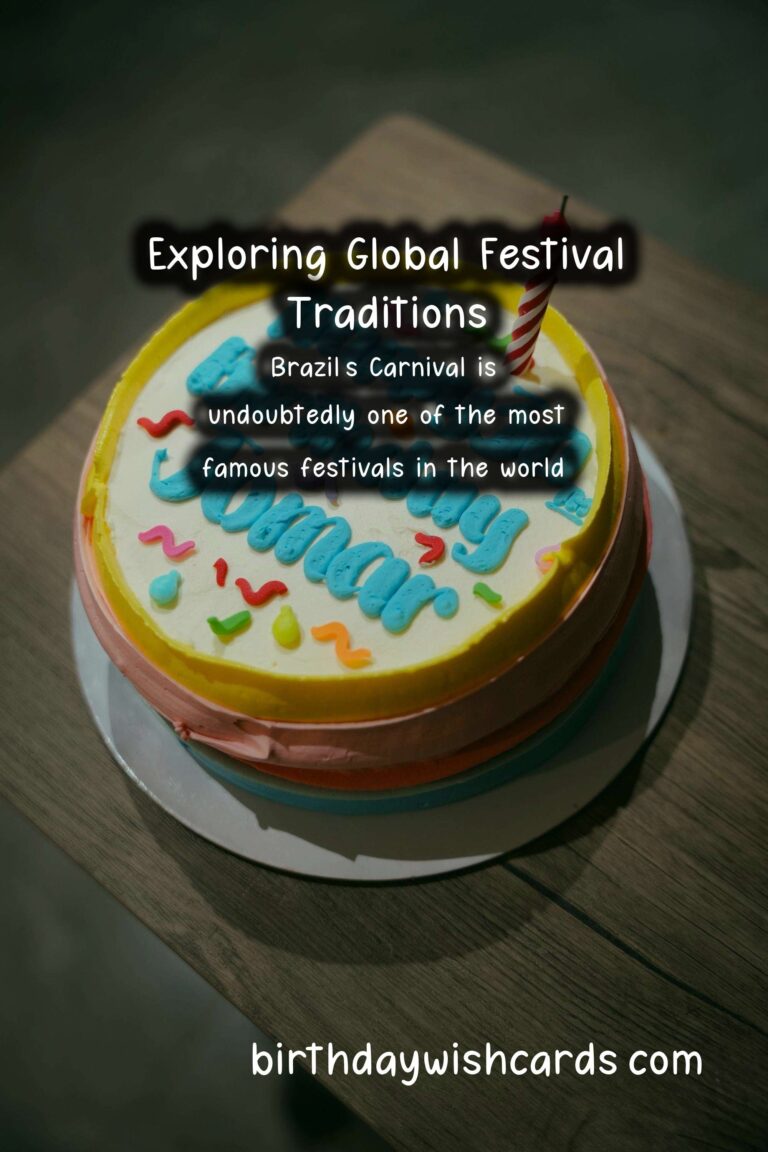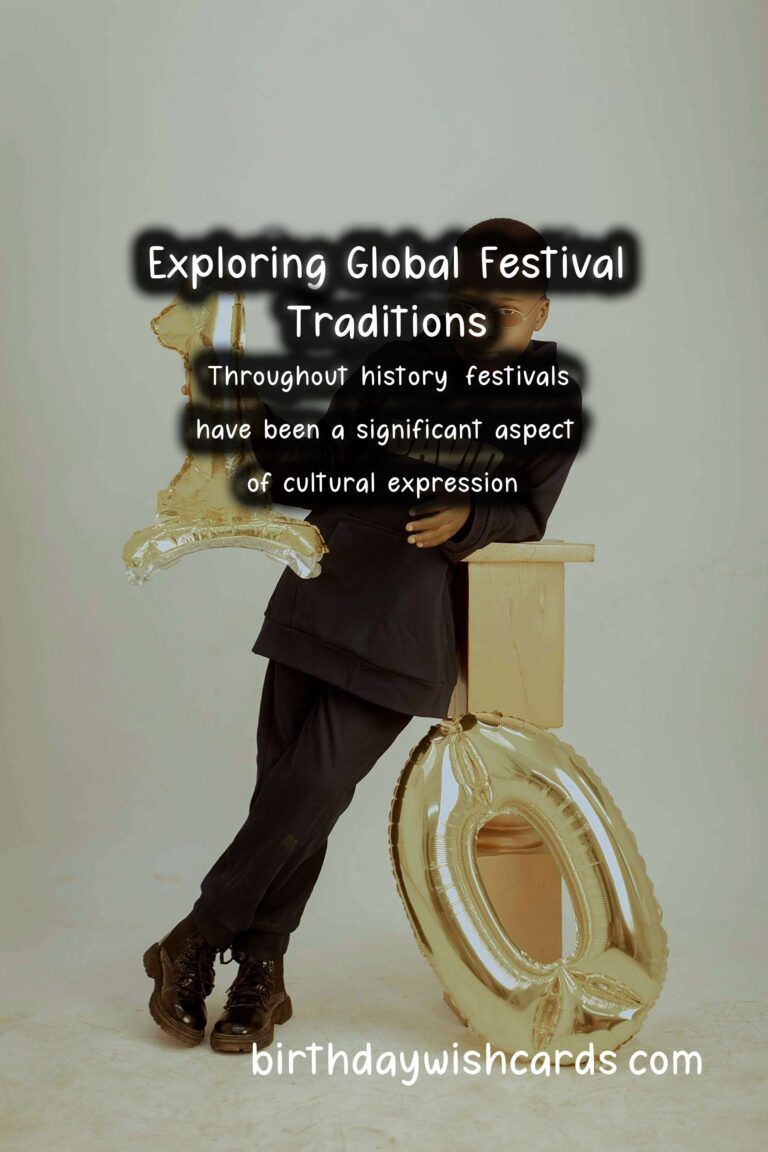
Throughout history, festivals have been a significant aspect of cultural expression, community bonding, and shared tradition. From the colorful parades of Carnival to the solemnity of Day of the Dead, these celebrations embody the spirit, values, and aesthetics of diverse cultures around the world. In this article, we will explore classic world festival traditions that shine, each illuminating the uniqueness of its origins and showcasing the vibrant tapestry of human creative expression.
Carnival in Brazil
Brazil’s Carnival is undoubtedly one of the most famous festivals in the world, drawing millions of visitors with its dazzling costumes, pulsating music, and infectious energy. Held annually before Lent, this festival features samba parades, street parties, and elaborate floats that showcase the diverse cultural lineage of Brazil.
The roots of Carnival can be traced back to European colonization, where it merged with African and Indigenous influences to create a unique celebration of cultural identity. Samba schools, which play a vital role in the festivities, begin preparing their performances months in advance, emphasizing community collaboration and tradition.
Diwali: The Festival of Lights
Diwali, known as the Festival of Lights, is celebrated by millions of Hindus, Jains, Sikhs, and Buddhists around the world. This five-day festival symbolizes the victory of light over darkness and good over evil. Homes are illuminated with oil lamps, candles, and fireworks, creating an enchanting atmosphere.
The celebration involves rituals such as decorating homes with colorful rangoli, exchanging sweets, and prayers to Lakshmi, the goddess of wealth. Diwali not only brings families together but also encourages acts of kindness and charity, emphasizing the importance of community.
Oktoberfest: A German Tradition
Originating in Munich, Germany, Oktoberfest is the world’s largest beer festival, attracting millions of beer lovers from around the globe. Celebrated over 16 to 18 days, starting from late September to the first weekend in October, this festival features traditional German foods, live music, and of course, a wide selection of beers.
Initially held to celebrate the marriage of Crown Prince Ludwig to Princess Therese in 1810, Oktoberfest has evolved into a grand celebration of Bavarian culture. It showcases traditional attire, such as lederhosen and dirndls, and fosters a sense of togetherness as people connect over shared experiences and hearty laughter.
Holi: The Festival of Colors
Holi, an ancient Hindu festival, celebrates the arrival of spring and the triumph of good over evil. Known as the Festival of Colors, it encourages joy, forgiveness, and unity among people. During this exuberant celebration, participants throw colored powders at each other, dance, sing, and indulge in festive foods.
The festival’s roots lie in various Hindu legends, primarily the tale of Prahlad and Holika, which teaches the importance of faith and devotion. Holi transcends cultural and social boundaries, promoting inclusivity and vibrant joy as communities come together to celebrate.
Chinese New Year: A Time for Reunion
One of the most significant celebrations in Chinese culture, the Chinese New Year marks the beginning of the lunar calendar and is a time of reunion for families. Festivities typically last for 15 days, culminating in the Lantern Festival. Homes are decorated with red lanterns, and families gather for lavish feasts.
Each year is associated with one of the 12 zodiac animals, influencing the themes and significance of the celebrations. Chinese New Year traditions include lion dances, firecrackers, and the giving of red envelopes filled with money, symbolizing good wishes and fortune.
Thanksgiving: A Day of Gratitude
Thanksgiving is a widely celebrated holiday, particularly in the United States and Canada, centered around giving thanks for the harvest and blessings of the past year. Traditionally marked by a feast featuring turkey, stuffing, and various sides, Thanksgiving has evolved to encompass family gatherings and expressions of gratitude.
Its origins can be traced back to early pilgrim celebrations in the 17th century, where gratitude was expressed for a bountiful harvest shared with Native Americans. Today, Thanksgiving fosters a sense of community and appreciation, highlighting the importance of connection and togetherness.
Day of the Dead: Honoring Ancestors
Day of the Dead (Día de los Muertos) is a Mexican holiday dedicated to honoring deceased loved ones. Celebrated on November 1st and 2nd, this vibrant festival combines Catholic traditions with indigenous practices. Families build altars (ofrendas) decorated with marigolds, photographs, and favorite foods of the departed, creating a warm invitation for them to return.
The blend of joy and remembrance in the celebration signifies a unique perspective on death, viewing it as a continuation of life rather than an end. This festival highlights the importance of family, tradition, and cultural heritage.
Conclusion
Festivals around the world are windows into the heart of human culture, showcasing the values, creativity, and spirit of communities. Whether grand or intimate, these celebrations reflect the timeless traditions that connect us across diverse backgrounds. Embracing these classic world festival traditions not only enriches our understanding of different cultures but also celebrates the common humanity that binds us all.
Throughout history, festivals have been a significant aspect of cultural expression. Brazil’s Carnival is undoubtedly one of the most famous festivals in the world.
#Carnival #Diwali #Oktoberfest #Holi #ChineseNewYear #Thanksgiving #DayOfTheDead

